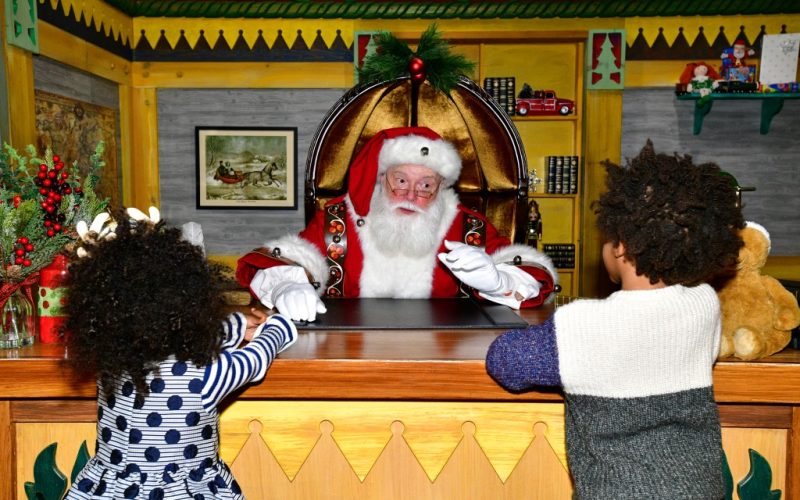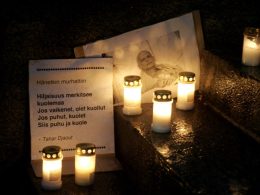“Can you fit into the Cat in the Hat costume for the Thanksgiving day float?” my friend David asked.
In November 1995, I was a year out of college and broke, attempting to restart my career after a stint as a child actor. Making espresso at Barnes & Noble paid $7 an hour and I was sick of eating cans of soup for lunch in the break room. So when I fit into the furry catsuit, I was thrilled. And bonus — it paid $12 an hour.
Early Thanksgiving morning, I was one excited cat, waving to the packed crows on the sidelines as my float kicked off the parade. Later that day, Macy’s hired me to appear as The Cat for the rest of the Christmas season, appearing in costume once an hour every day on the 8th floor near Santaland.
Macy’s set clear rules: First, I was never to speak aloud lest the Dr. Seuss estate sue Macy’s. Second, worried the suit and fur were so heavy they’d cause suffocation, I could only wear the suit for 20 minutes before taking an official break. This was much easier than making lattes for the Upper West Side at Barnes & Noble.
Two days after the parade, I started the job. After a few minutes of strolling and shaking my tail at customers, I’d sit on my cat throne, posing for photos with sniffling kids on my lap. Then head back to my private dressing room — a large supply closet — while the parents and kids would head to Santaland, greeted by dozens of unemployed musical theater actors dressed as elves.
While I relaxed in privacy, waiting for my agent to page me for an audition (yes, this was 1995), I’d hear the elves, on their break, singing show tunes at the top of their lungs across the hall. Every time I walked by on the way to the bathroom, they’d stop their singing and ballet warmups to stare me down, likely jealous of my private dressing room.
On my final day at Macy’s, my parents finally stopped by. While someone took our picture, my frowning father glanced at my mother and muttered, “We spent thousands of dollars on acting classes for this?” He was right. All my friends had jobs in advertising, on Wall Street, or already were in law school. One friend was making more money than all of us, working for Reuters and learning how to publish articles on this brand-new thing called the World Wide Web.
I just wanted to have enough money to move out from my parent’s apartment and maybe own my own couch one day. How long would I don furry animal costumes, avoiding the real role I needed to play — myself?
Two weeks after my cat gig ended, my mother entered my childhood bedroom, stepped over me, sleeping on the futon, opened the shades, and screamed, “Get up and DO something with your life.” Luckily, that afternoon, my agent paged me and said to prepare an audition to play Sylvia, the labradoodle in A.R. Gurney’s hit off-Broadway play “Sylvia,” a role Sarah Jessica Parker had originated.
But I didn’t prepare. Instead, I faked my way through the audition scenes, crawling around the filthy audition room carpet, attempting to “bark” and “sit.” After a loud bark, I caught eyes with the casting director, who was mortified. I snuck out of the audition room, embarrassed. Dazed, I walked up Sixth Ave. and ceremoniously tossed my box of expensive headshots into a trash can, my acting career officially over.
I still wanted to be part of show business, so I took a job as an assistant to a casting director (about $7/hour) and found I liked being on the other side of the table. I could help actors fulfill their dreams and still see tons of theater. At age 30, I landed a job as a casting executive at The Walt Disney Company.
Attending a senior staff meeting 10 years after my Cat gig, my boss asked if anyone had any experience with the Macy’s Thanksgiving Day Parade. We were going to have one of our Broadway shows on a float. I raised my hand and shared my story.
“Well,” my boss said, laughing, “Look at you now. You’ve finally made your parents proud.”
Rudin is an award-winning casting director and author of “Confessions of a Casting Director,” published by HarperCollins.








